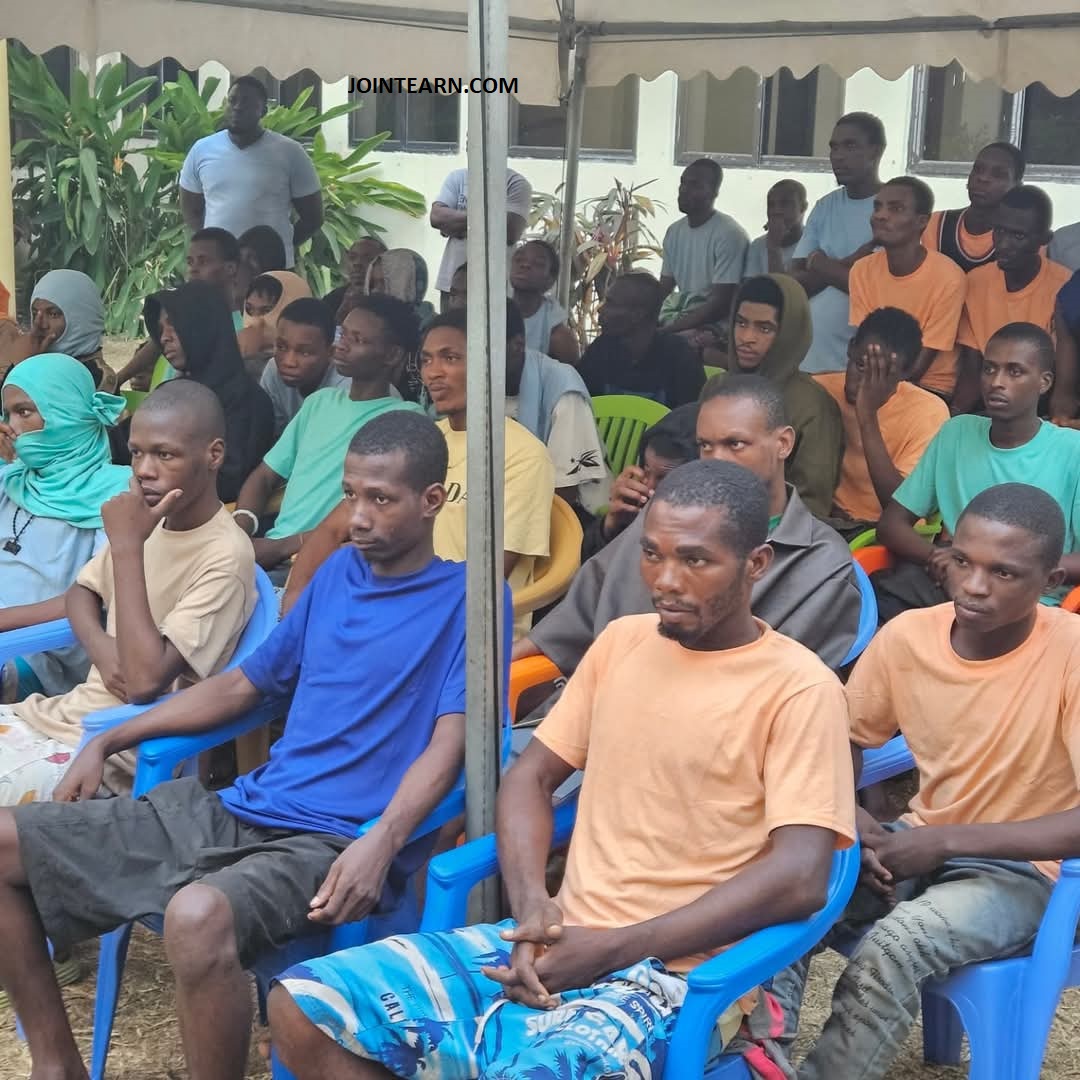In a remarkable turn of events, 231 Nigerian youths have safely returned to Nigeria after being rescued from human trafficking in Ghana. This major operation, which marks a significant step in the fight against human trafficking in the region, highlights the ongoing struggles many young Nigerians face as they fall victim to deceptive practices that promise a better life abroad.
The youths, primarily aged between 18 and 25, were trafficked to Ghana under the false pretense of better job opportunities and educational prospects. Many of them were promised lucrative employment in the hospitality and entertainment sectors, but upon arrival in Ghana, they found themselves trapped in a web of exploitation, forced labor, and, in some cases, sexual exploitation. The traffickers had manipulated them with promises of quick financial gains, and many of the victims were in debt to the traffickers, leaving them unable to escape their situation.
This rescue operation was the result of a combined effort between Nigerian authorities, the Nigerian Embassy in Ghana, and international anti-trafficking organizations. Through diligent investigative work, the Nigerian government was able to trace the whereabouts of the trafficked youths and collaborate with local Ghanaian law enforcement to raid the areas where they were being held.
The rescue mission began earlier this month after reports surfaced about a growing network of human traffickers exploiting young Nigerians in neighboring West African countries. Many of the youths had been promised employment opportunities in Ghana’s informal economy, but instead, they found themselves in degrading conditions, living in overcrowded apartments, and working in exploitative circumstances that left them vulnerable to abuse.
Upon their arrival at the Nigerian embassy in Accra, the youths were given medical attention and psychological support to help them recover from their traumatic experiences. Many of the victims showed signs of severe emotional distress, and some had physical injuries related to the harsh conditions they endured while being trafficked.
In an emotional homecoming, the youths were flown back to Nigeria, where they were received by family members, government officials, and representatives from NGOs dedicated to fighting human trafficking. The Nigerian government, through its Ministry of Foreign Affairs and the National Agency for the Prohibition of Trafficking in Persons (NAPTIP), promised to assist in rehabilitating and reintegrating the youths into society.
A spokesperson for NAPTIP expressed relief at the successful operation, stating that the agency has been intensifying efforts to track and dismantle human trafficking networks operating across West Africa. The spokesperson emphasized that human trafficking remains a serious issue in the region, particularly for young Nigerians who are often misled into leaving the country for opportunities that do not exist.
This operation serves as a stark reminder of the dangers of illegal migration and the ever-present threat of human trafficking in sub-Saharan Africa. Traffickers prey on the vulnerability of young people, particularly those seeking employment or education abroad, by promising them better lives in countries like Ghana, Libya, or Europe. However, once these individuals reach their destinations, they find themselves caught in a vicious cycle of exploitation, with little hope of escape.
In addition to the physical and emotional scars left on the victims, the financial toll is another significant concern. Many of the youths had borrowed money from family members or sold valuable assets in hopes of securing a brighter future. In some cases, traffickers demanded exorbitant fees for the youths’ release or threatened harm to their families in Nigeria if they failed to comply with their demands.
This case highlights the importance of education and awareness programs to prevent young Nigerians from falling victim to such exploitation. Government agencies and non-governmental organizations continue to raise awareness about the dangers of trafficking, but the challenge remains substantial. Many youths are unaware of the risks involved in seeking opportunities abroad through unregulated channels, and traffickers often exploit their desperation.
The Nigerian government, alongside international partners, has been working to strengthen anti-trafficking laws and support victims of trafficking. In addition to providing shelter and rehabilitation services for the rescued individuals, there are also efforts underway to prosecute those responsible for these crimes. The government has vowed to hold traffickers accountable and strengthen border security measures to prevent further trafficking cases.
Though the return of the 231 youths is a cause for celebration, the broader issue of human trafficking continues to pose a major challenge for Nigeria and other countries in the region. Law enforcement agencies across Africa are increasingly cooperating to tackle trafficking networks that operate not just across national borders, but across the continent.
As part of a broader initiative, Nigerian authorities are stepping up public education campaigns aimed at empowering young people to make informed decisions about migration. Awareness programs are being expanded to schools, universities, and local communities to reduce the risk of trafficking.
The recent rescue underscores the critical need for continued vigilance and collaboration among governments, law enforcement agencies, and civil society to combat human trafficking in all its forms. It also calls attention to the importance of supporting and empowering vulnerable youths to find safe and legitimate opportunities both within Nigeria and internationally.
The 231 youths’ safe return is a testament to the resilience of those who survived the horrors of trafficking and the unwavering efforts of the authorities and organizations working to bring them home. It is hoped that their experience will serve as a catalyst for change in both the fight against human trafficking and the creation of better opportunities for young people across the African continent.












